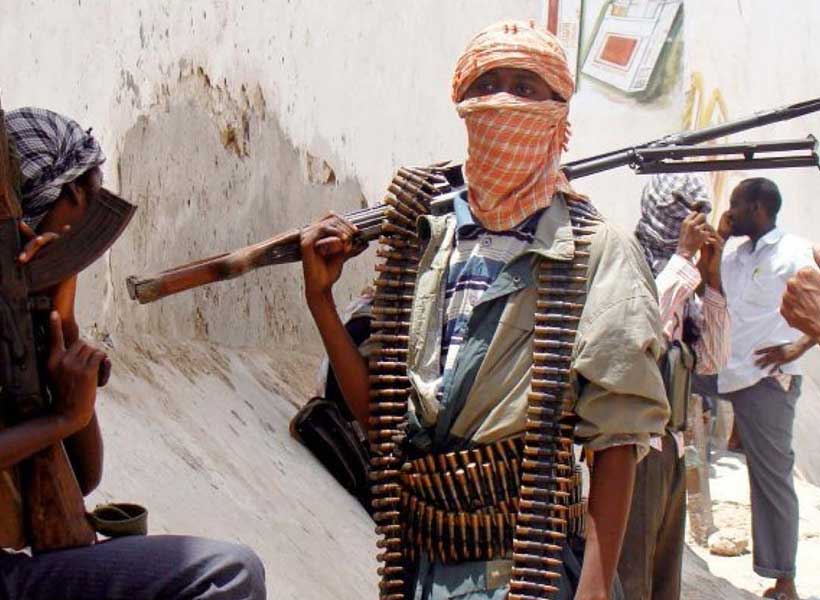Authors: Farzad Ramezani Bonesh and Chidiebere Favour Nwobodo
Although boko haram and ISIS have been confusingly used interchangeably due to their seemingly common characteristic, which majorly stems on terrorism, this research gives a clear distinction between the duos. Different tactics are being used by these groups ranging from locally made weapons to acquiring sophisticated weapons to carry out their attacks. Understanding the strategic trend of these terrorist groups will aid in the understanding of their operations.
Boko Haram And ISIS: An Overview
Boko haram in Nigeria has not only become synonymous with terrorism but has also become a nightmare in the history of the national security. When one talks about boko haram, one refers to an era of kidnappings, killings, bombings and displacement, which have left many in the dungeon of misery. The Arabic name for boko haram is Jama’atu Ahlissunnah lidda’awati wal Jihad, which means ‘People Committed to the Propagation of the Prophet’s Teachings and Jihad’ (Onuoha, 2011). The sole aim of the group is the overthrow of the Nigerian state and the implementation of Sharia across the entire country.
On the other hand, ISIS (Islamic State of Iraq and Syria), according to a BBC report, was originally formed in April 2013 and emerged out of Al Qaeda in Iraq (BBC, 2014 I in Olayinka, 2020). Abu Bakr Baghdadi was the Caliph of this group.
Differences And Similarities Between Boko Haram And Isis In The Year 2019 And 2020
One major difference between these two groups is the fact that these groups are from different parts of the world. Whereas boko haram originated from Nigeria, ISIS emerged out of al-Qaeda in Iraq. Another major difference is in their funding. According to Eme,O.I and Ugwu, C.C(2016), Boko haram in Nigeria generates their funds through bank robbery, and other illegimate transactions. In the cases of ISIS, their most common ways is through the black-market antiquity sale. They also partake in the illegal sale of treasures and artifacts, oil smuggling and trafficking. ISIS has been known to be state-sponsored by some countries.
Based on their similarities in the recent year, this research analytically looks at their mode of operation and attacks. In general, the weapon types common with these terrorist groups are explosives and firearms, while the attack types common to them are armed assault, assassination, and bombing. For example, Guardian newspaper (2019) recorded that “More than 60 mourners leaving a funeral at Maiduguri in north-east Nigeria were killed by the militant group of boko in haram in 2019”. This Day newspaper (2020) recorded on March 31st, “a theatre of death for Nigerian soldiers” as 47 soldiers were killed and 15 others badly injured by boko haram. Similarly, The Guardian (2019) in the rise and fall of the ISIS “caliphate” posits that “Destruction had been a calling card of ISIS’s presence ever since Baghdadi”.
Most Important Changes To Boko Haram In The Past Years
This has to do with the evolution of this group over the years starting from the bringing in of Abubakar Shekau into power as the successor of Mohammed Yusuf (founder), after he died in the Nigerian police detention. This group has survived thanks to its ability to reinvent itself, change tactics and adopt different strategies. Over the years, this group had adopted varying different terror strategies, which include upgrading from locally made weapons to sophisticated weapons, upgrading from bank robbery to kidnapping as their means of funding and so many others.
Current Situation Of Boko Haram In Nigeria
The emergence of Boko Haram; particularly, the adopted mode of prosecuting their objective have posed serious threat to Nigeria and its citizen without excluding foreigners. It must also be noted that Boko Haram’s activities has also led to closure and abandonment of people’s business activities within the affected area.
Currently, the emergence of Boko Haram in Nigeria has negatively affected the relationship between Nigeria and other nations of the world because of bombing couple with kidnapping and hostage taking with or without demand for ransom; particularly of alien.
Conclusively, the current situation of boko haram in Nigeria still poses security threat and economic threat in Nigeria. This research also opines that terrorism has been and is still the watchword of these two groups; therefore, one cannot be mentioned without the other. The changes made so far to boko haram is still a nightmare to both Nigeria citizens and non-citizens. To so many foreign countries, Nigeria is being described as one of the most dangerous places in the world filled with corruption.
Vision
As various economic, social, political, religious factors and environmental challenges were involved in the formation of the Boko Haram extremist group, various factors also have role in its future and the continuation of its power in Africa.
In recent years, Boko Haram has been present in nearly twenty Northern provinces of Nigeria, the Republic of Niger, Chad, Cameroon and Sudan, and has been able to expand its relations with Salafi jihadist groups domestically, regionally and internationally. In addition to working with extremist groups in West Africa, the group is linked to ISIS and its affiliates and allies around the world.
Boko Haram is still financially part of the world’s richest terrorist organization, and could be no less violent and dangerous than ISIS with its main focus is on terrorist attacks on close enemies (Christians and Shiites in Nigeria).
In fact, although the Nigerian government and neighboring countries have been battling the Boko Haram terrorist group in recent years, they have so far failed to completely defeat the group. In the meantime, since the various roots of the formation of Boko Haram have not yet been eradicated in West Africa, we should not wait for the failure of Boko Haram in the short term. In fact, it seems unlikely that governments will be able to take an effective step toward a complete boycott of Boko Haram, and that these areas will continue to be the strongholds of these extremist and fundamentalist groups


